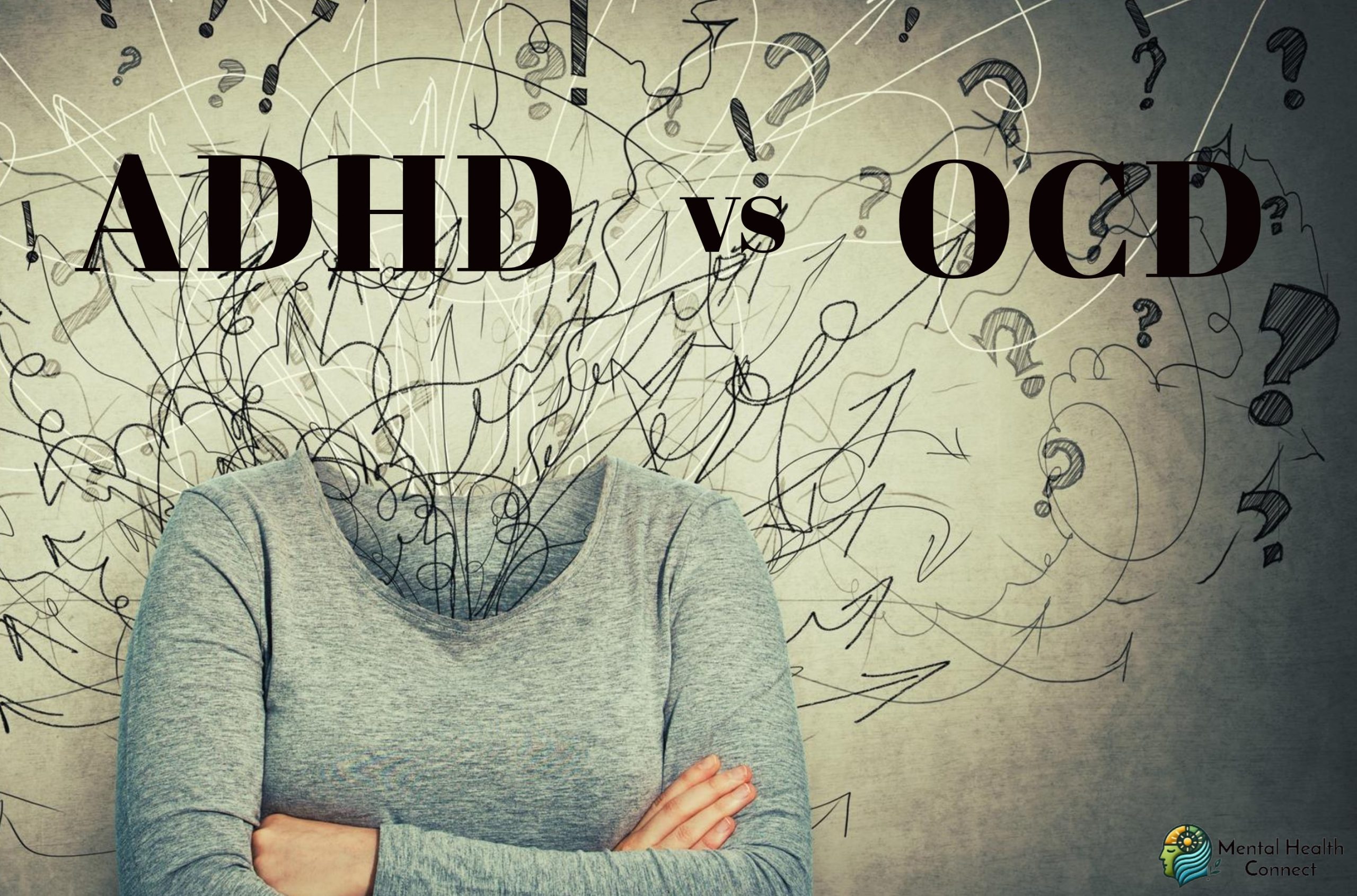ADHD vs. OCD: What Sets Them Apart?

While attention-deficit/hyperactivity disorder (ADHD) and obsessive-compulsive disorder (OCD) may occasionally present with overlapping symptoms, they are distinct neurological conditions with different underlying mechanisms, symptoms, and treatment approaches. This blog explores the key differences between these two commonly misunderstood conditions.
Understanding ADHD
Persistent patterns of impulsivity, hyperactivity, and inattention that impede daily functioning and growth are hallmarks of ADHD. People with ADHD often struggle with:
- Difficulty sustaining attention during tasks or activities
- Challenges with organization and time management
- Frequent restlessness or fidgeting
- Impulsive decision-making without considering consequences
- Interrupting others or difficulty waiting their turn
The core issue in ADHD involves executive functioning the brain’s ability to manage, organize, and execute tasks. This is why individuals with ADHD may start projects with enthusiasm but struggle to follow through to completion.
Understanding OCD
OCD involves unwanted, intrusive thoughts (obsessions) that trigger anxiety, followed by repetitive behaviors or mental acts (compulsions) performed to reduce this distress. Common manifestations include:
- Persistent unwanted thoughts about contamination, harm, or symmetry
- Ritualistic behaviors like excessive handwashing or checking
- Mental rituals such as counting or repeating phrases
- A need for exactness or perfection
- Significant distress when rituals cannot be performed
Unlike ADHD, which involves difficulty focusing, OCD often involves excessive focus on particular thoughts or actions to the point of distress.
Key Differences Between ADHD and OCD
Attention and Focus
- ADHD: Characterized by difficulty maintaining attention and focus, especially on mundane tasks
- OCD: Often involves hyperfocus on specific obsessions or compulsions
Intentionality
- ADHD: Behaviors are generally unintentional and not driven by anxiety
- OCD: Compulsions are intentionally performed to reduce anxiety from obsessive thoughts
Impulsivity vs. Rigidity
- ADHD: Features impulsive actions without much forethought
- OCD: Features rigid adherence to specific rituals or rules
Response to Disorder
- ADHD: Individuals may be unaware of their inattention or hyperactivity
- OCD: Individuals are typically aware their obsessions and compulsions are excessive
When ADHD and OCD Coexist
Approximately 30% of individuals with OCD also have ADHD. This comorbidity can complicate diagnosis and treatment, as symptoms may overlap or mask each other. For example:
- Difficulty concentrating in OCD may be due to intrusive thoughts rather than ADHD-related inattention
- Repetitive behaviors in ADHD might be due to impulsivity rather than anxiety-reducing compulsions
Treatment Approaches
The distinct neurobiological bases of these conditions necessitate different treatment approaches:
ADHD Treatment
- Stimulant medications (methylphenidate, amphetamine)
- Non-stimulant medications (atomoxetine, guanfacine)
- Behavioral therapy and coaching
- Environmental modifications
OCD Treatment
- Exposure and Response Prevention (ERP) therapy
- Cognitive Behavioral Therapy (CBT)
- Selective Serotonin Reuptake Inhibitors (SSRIs)
- Mindfulness practices
When both conditions coexist, integrated treatment approaches addressing both disorders simultaneously yield the best outcomes.
Understanding the differences between ADHD and OCD is crucial for proper diagnosis and effective treatment. While they may sometimes appear similar on the surface, these conditions involve different neural pathways, behavioral patterns, and therapeutic approaches. If you suspect you or a loved one may be experiencing symptoms of either condition, consulting with a qualified mental health professional is the first step toward appropriate care.
-
 How to Support Someone with OCDApril 17, 2025
How to Support Someone with OCDApril 17, 2025 -


Leave a Reply